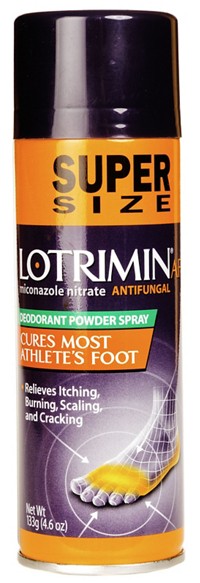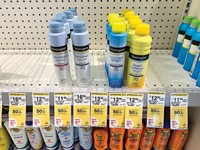Advertisement
Grab your lab coat. Let's get started
Welcome!
Welcome!
Create an account below to get 6 C&EN articles per month, receive newsletters and more - all free.
It seems this is your first time logging in online. Please enter the following information to continue.
As an ACS member you automatically get access to this site. All we need is few more details to create your reading experience.
Not you? Sign in with a different account.
Not you? Sign in with a different account.
ERROR 1
ERROR 1
ERROR 2
ERROR 2
ERROR 2
ERROR 2
ERROR 2
Password and Confirm password must match.
If you have an ACS member number, please enter it here so we can link this account to your membership. (optional)
ERROR 2
ACS values your privacy. By submitting your information, you are gaining access to C&EN and subscribing to our weekly newsletter. We use the information you provide to make your reading experience better, and we will never sell your data to third party members.
Consumer Products
Reactions: Moose adventures and the regulation of benzene
December 1, 2022
| A version of this story appeared in
Volume 100, Issue 43
Letters to the editor
Moose adventures in Canada
The photo of the crash test dummy moose in Newscripts (C&EN, Sept. 19, 2022, page 32) brought back the memory of motoring with my wife on the Trans-Canada Highway north of Lake Superior in about 1980. As we registered in a motel in Wawa, Ontario, the desk clerk asked me if I had noticed a little red sports car in the lot. It and its driver had survived driving under a moose.
Incidentally, when I had a summer job in the research lab of Canadian Industries Limited at McMasterville, Quebec, in 1947, the lab had a system of prizes: the One Bell Prize for a helpful bit of lab technique, the Two Bell Prize for finding a new substance of interest, the Three Bell Prize for a major advance, and the No Bell Prize for a conspicuous goof.
ACS 2021 IRS Form 990 available
The American Chemical Society’s 2021 IRS Form 990 is now available on the ACS website. To access the information, go to www.acs.org/acsirsform990. Please scroll toward the bottom of the page to access the 2021 form and related Guide to Schedule J for explanatory information regarding ACS executive compensation. If you have any access problems, please contact service@acs.org.
Robert A. Stairs
Peterborough, Ontario
Regulation of benzene in liquefied petroleum gas
The propane, butane, and isobutane mentioned in the article on benzene in dry shampoo (C&EN, Oct. 24/31, 2022, page 10) are sold as liquefied petroleum gas, known to the consumer as propane. Liquefied petroleum gas is a commodity produced by oil refineries and sold as a fuel for cooking, heating, grain drying, forklift trucks, and even backyard barbecues.
The benzene discovery indicates contamination of some of it. As a commodity, it is easily commingled in distribution, as some may be supplied from multiple sources. Benzene in liquefied petroleum gas used as fuel may not be a concern, but caution is required when liquefied petroleum gas is used as a propellant in aerosol consumer products. In addition to cosmetic products, bug sprays and spray paints might be affected.
The benzene content of gasoline is regulated. Is benzene regulated in liquefied petroleum gas?
Paul E. Eckler
Wildwood, Missouri




Join the conversation
Contact the reporter
Submit a Letter to the Editor for publication
Engage with us on Twitter